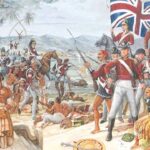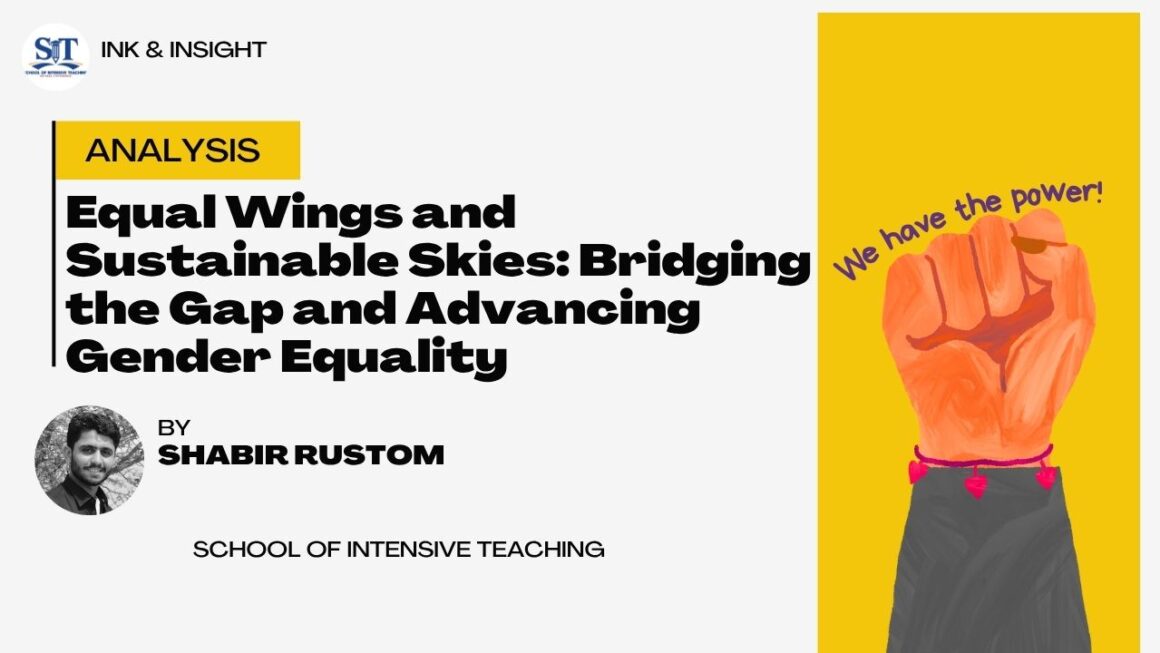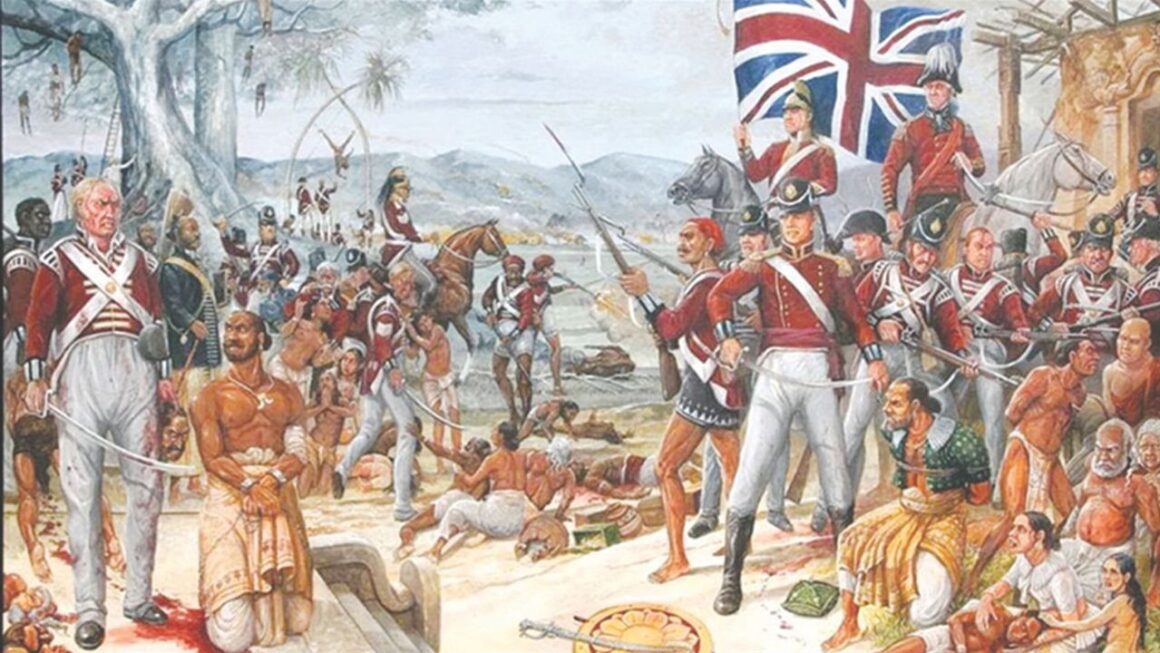“When Aunt is dead, her terrified hands will lie,
Still ringed with ordeals she has mastered by.
The tigers in the panel that she made,
Will go on prancing, proud and unafraid.”
The above stanza is from “Aunt Jennifer’s Tigers” by Adrienne Rich. This stanza clearly depicts the plight of women in society and shows that how traditional male role has not changed yet. It shows how women are subjected to men’s will and authority. Aunt Jennifer is enclosed in the boundaries of the house, and, with her fragile fingers, she sews white tigers. These tigers metaphorize the traditional role of men whose authority remain eternal, unbounded and unafraid. However, women in this jungle are just a cog in the machine who are subject to male whim and will. It is an un doubted fact that the fragile and terrified hands of Aunt Jennifer symbolize the condition of women. Gender inequality has remained a constant in history and has not diminished with civilization or democracy. Women, still, in this age of democracy and artificial intelligence face the traditional discrimination—both in private and public speres of life. Since the last two decades, the traditional role of men has not diminished. Women are still relegated to the walls of honor and subjected to various forms of violence. Women are still disguised as a commodity and object of the male gaze. If the world cannot save one Aunt Jennifer how can it claim to protect all women of the world? Is not our world still deeply patriarchal? Is gender equality still a distant reality? Why the traditional role of man has failed to change? What culprit factors are contributing in the continuation of traditional role of man in the society?
The patriarchal mores of society has led to the construction of gender roles. In the unwanted glare of the society, a male boy is compelled to play with toys that are meant to contribute in his cognitive behaviors. The male boy, in childhood, is given a gun and soldier uniforms and asked to be brave and courageous. However, on the other side of the aisle, a baby girl is given a barbie doll to play with and asked to avoid guns. The boy is told too frequently that crying is not meant for boys and it is more feminine. Similarly, the society demands that being emotional is meant only for girls and women and is a feminine thing. These social construction of male roles by society further the foundational edifice of patriarchy. Concomitantly, this patriarchal social construction has challenged to change the traditional role of male in anyway.
Domestic violence against women and honor killing are still the vernacular language of today’s world.
Apart from patriarchy, the traditional role of male has commodified women for male gaze only. While roaming around a city, one will come up with advertisements featuring a female model marketing fairness products and fitness techniques. Not only advertisements, but also flight attendance and personal secretary positions are given to women to attract wider customers. This has inadvertently resulted in the relegation of women to lower positions of jobs and in inferiority complex division. If we have had a brush with reality, than the traditional role of male would had to carry the baggage of the blame of commodifying the roles of women in the name of gender equality.
Domestic violence against women and honor killing are still the vernacular language of today’s world. Last year, in Islamabad, Noor Mukadham was found beheaded and the male victim, soaked in her blood, was playing with her head. This news raised many eyebrows that if the daughter of an ambassador was not safe from such barbaric and inhuman act, how can other women be safe from domestic violence. Similarly, Zeenat Aman, a hollow soul battered with wounds and pains and a well-known Bollywood actress, in an interview shared her ordeal of domestic violence. She sat in front of camera with a swollen eye that spoke volumes about her physical torture. If an actress like Zeenat Aman is not safe from domestic violence, what about the fate of other women?
Honor killing also remains one of the baggage of traditional male role. Few years back, in Sibi Balochistan, five young girls were buried alive in the name of family honor. However, later it was revealed that the poor souls were innocent and were buried alive on suspicious bases—yet becoming another statistic in the shameful chronology of honor killing in the country. Similarly, Qandeel Baloch was killed in the name of honor. Her brother proudly announced in TV that he has killed her because she has transgressed the, tangible and intangible, redlines of honor of the family. The traditional role of male has considered itself the only protector and gate-keeper of female honor. If one passes out of the gate, she is either answered with red-bullets or with exemplary punishments that had been awarded to other women of the society—alive burial. Is there anyone who still holds the view that the traditional role of male has changed in the last two decades?
The question here that begs the answer, what needs to be taken to change this traditional mentality? First of all, we have to change the traditional construction of gender roles in order to challenge men traditional role. A baby boy should not be exposed to gender specific toys and should not be asked to be brave like ‘papa’ or ‘bhaiya’. Similarly, a baby girl can also be brave and courageous. If she wants to play with whatever toys, she should be allowed. It should not be must for a girl to be “pretty like mommy”, she simultaneously can be bold like ‘papa and mommy’. Exposing children with gender segregation, can have imprinted consciousness in their minds.
Secondly, we have to promote an education system that is unbiased and neutral. An education system that relegates women as weak and emotional will no doubt strengthen the traditional consciousness of male. Female heroes and queens should be included in textbooks. A partial education will bring good results and will challenges the traditional role of male in the society.
Lastly, religious texts and discourses should be re-interpreted. Islam is a religion of peace and equality that gives equal representation to all women. However, many myths have been constructed in the name of religion that are not letting women to break the glass ceiling. If religious texts are interpreted partially and in unbiased manner, then it will surely demystify many myths that have furthered the traditional role of male.
To sum it up, it can be argued that the traditional role of male has indeed not changed in the last two decades. If we want to change this role, than there are certain pragmatic measures which need to be taken carefully and urgently.
About the Author:

Jahanzaib Mengal
SIT AlumniJahanzaib Mengal has done his graduation from Qauid-i-Azam Univeristy Islamabad in International Relations. His field area is International Politics, Indian Ocean, and National Security.













